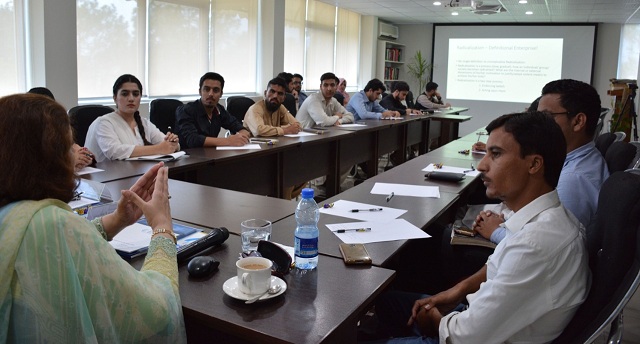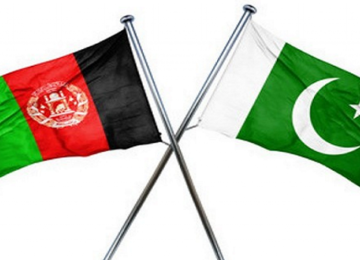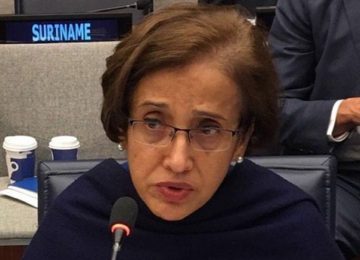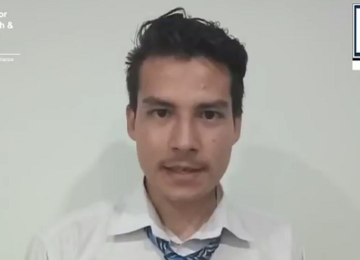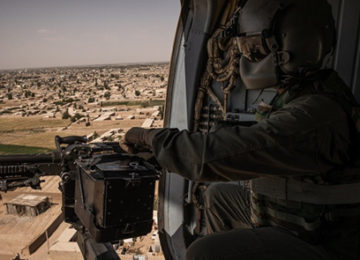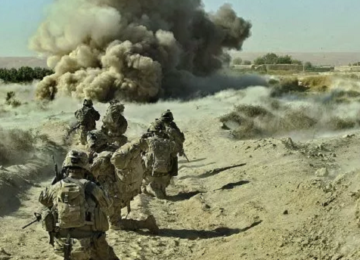August 9, 2019
How does an individual, group or society become radicalized? What are the internal or external dimensions of his/her motivation to justify or adopt violent means to his/her ends? What goes on before the bomb goes off? Dr. Shabana Fayyaz, an , Counter-Radicalization expert, and Head of the Department of Strategic Studies at Quaid-e-Azam University, Islamabad, posed several thought-provoking queries to youth from Pakistan and Afghanistan at Afghan Studies Center’s 13th Pak-Afghan Youth Training Workshop on August 07, 2019, in Islamabad. Participants from various areas across Pakistan and Afghanistan attended, including Peshawar, Quetta, Islamabad, Muzaffarabad, Kabul, Mazar-i-Sharif and Kandahar. The topic of the workshop was: “Theoretical Foundations of Radicalization and Violent Extremism.
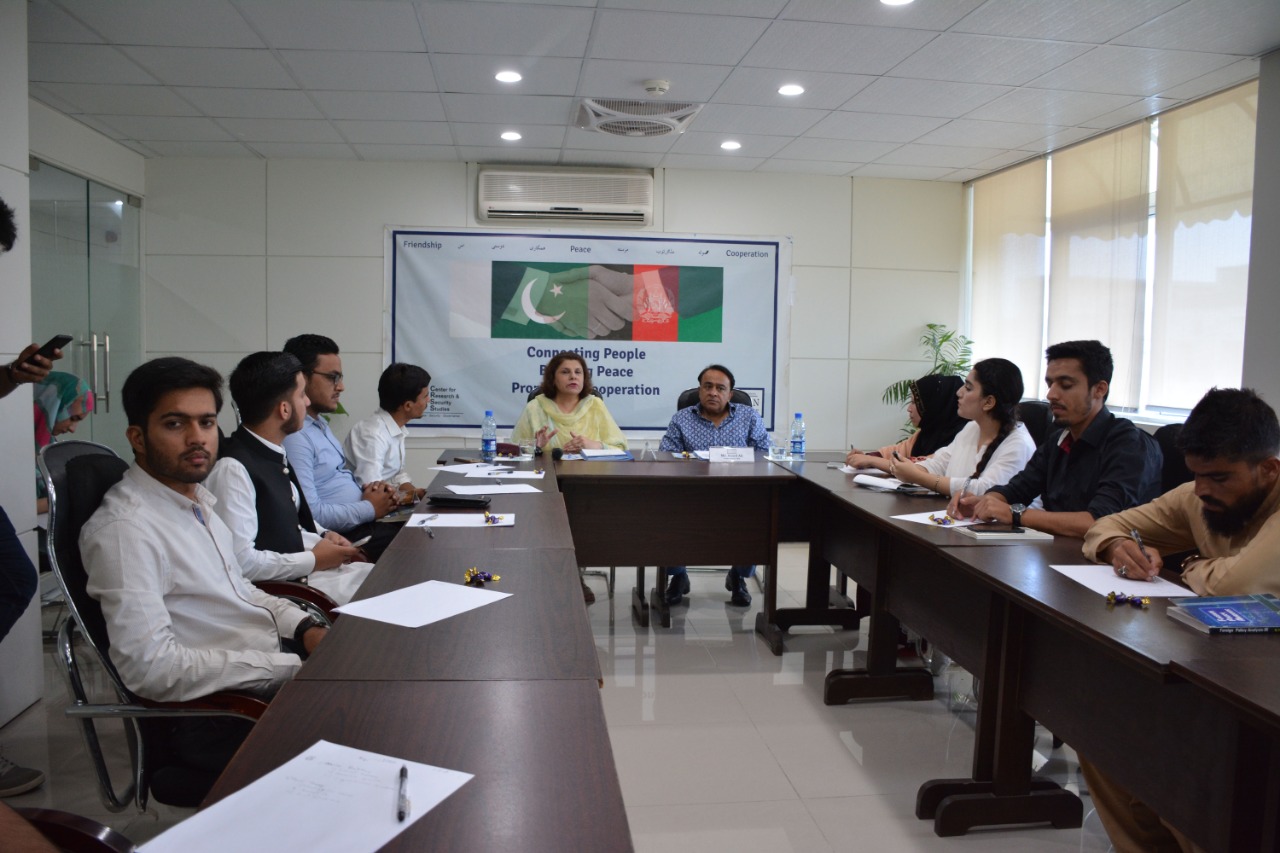
Dr. Shabana Fayyaz began her session by firstly showing her solidarity with the people of Kashmir. Referring to India’s activities in the Indian Occupied Kashmir as a horrific example of radicalization, Dr. Fayyaz referred to India’s recent actions regarding Kashmir as an example of political terrorism where the government abrogated their own constitution to wield a new structure.
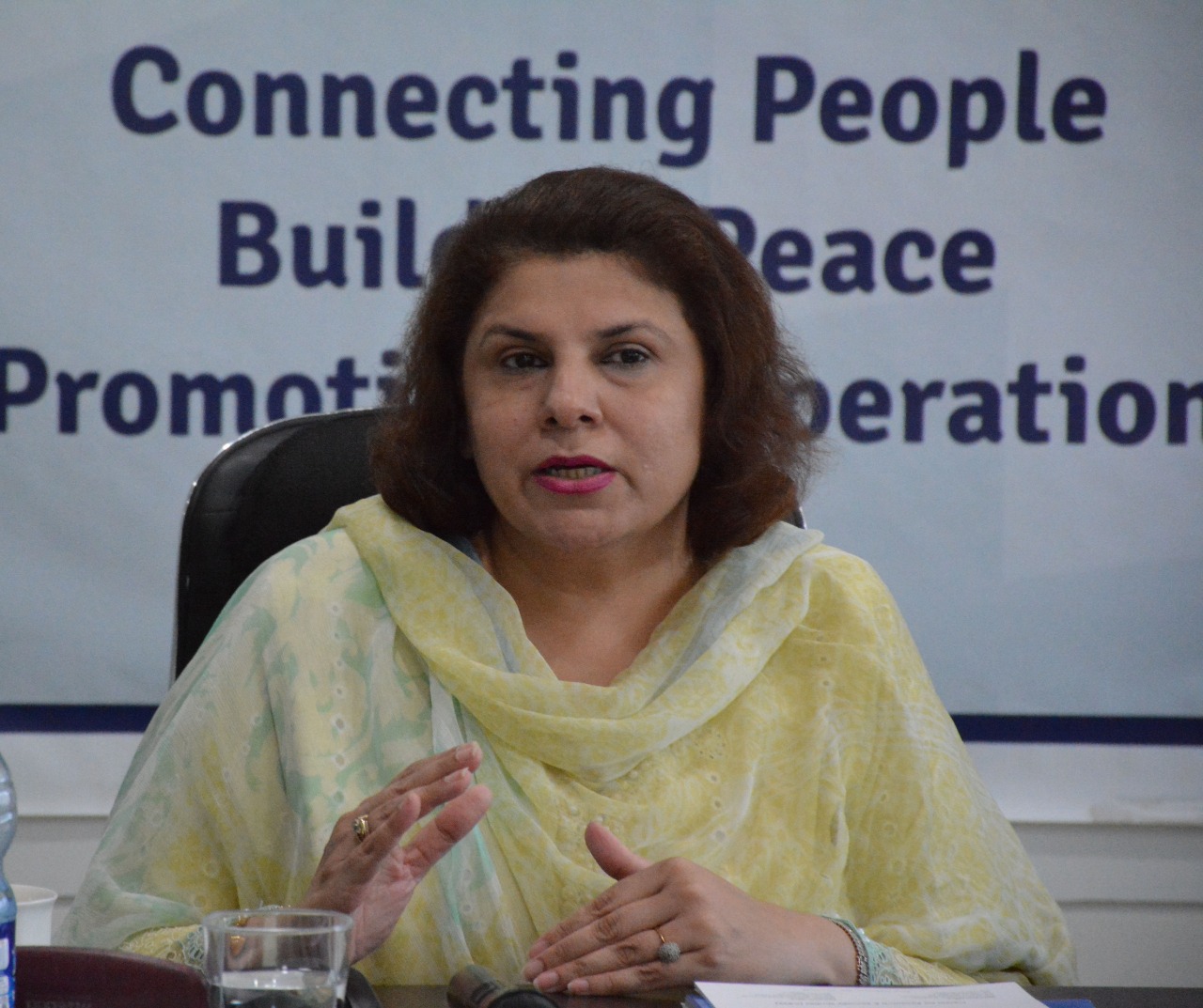
Dr. Fayyaz stated that, unfortunately, terrorism, radicalization and violent extremism have become a daily occurrence in our lives in the contemporary world.
From a scholarly perspective, Dr. Fayyaz apprised the participants that radicalization has no single definition to be conceptualized. However, as all scholars agree, it is a gradual process manifested by two stages involving the endorsement of strong beliefs and then acting upon them. It is a gradual slide into extremism, fundamentalism, or more generally, a movement towards justifying violence and finally personally engaging in it.
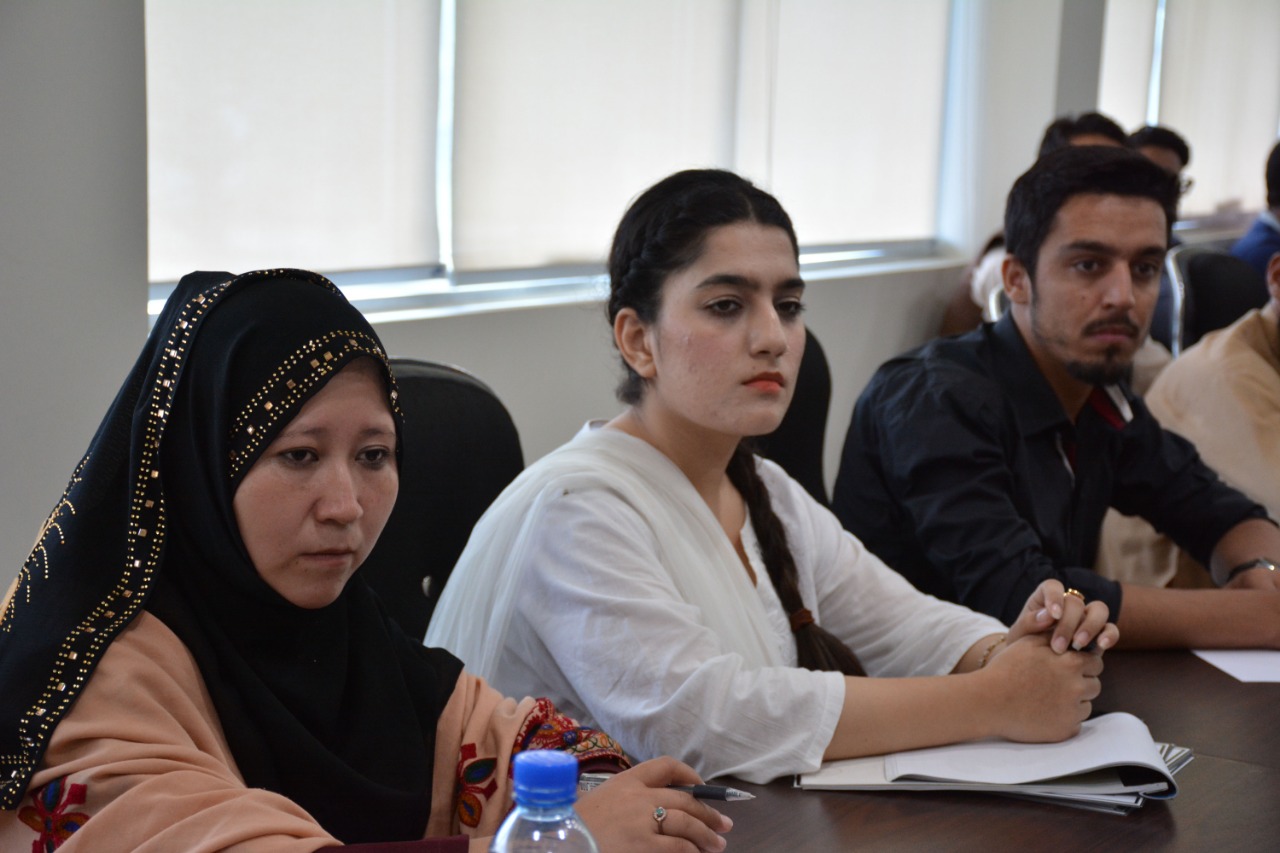
Dr. Fayyaz in her detailed presentation stated that radicalization leading to violence may take diverse forms depending on the context and time period, and may be associated with different causes or ideologies. These include 1) Right-Wing Extremism, 2) Politico-Religious Extremism, 3) Left-Wing Extremism, 4) Single-Issue Extremism and 5) Home grown Radicals – Europe (Insider Threat), to name some examples. Also, Dr. Fayyaz explained the different theoretical approaches of radicalization from a scholarly perspective as including 1) the psychological traits based approach, 2) coercion and manipulation, 3) grievance and vulnerability approach and 4) the rational choice approach.
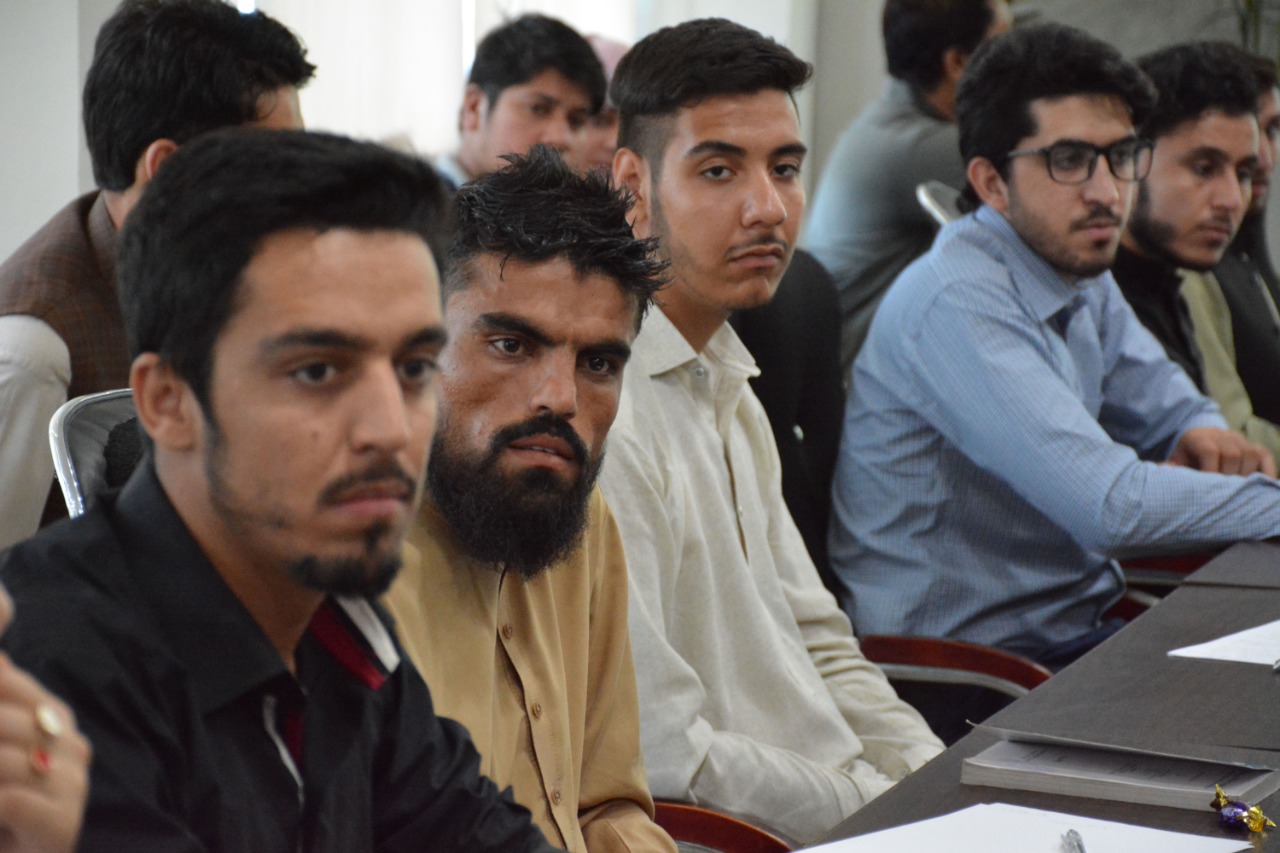
In the Q&A session, the participants posed several questions including on the role of economic conditions on the germination of radical views in a society, whether the US can be considered as an example of state-sponsored terrorism, the role of madrassahs and the Afghan Taliban as a group with extremist ideology. Responding to the queries, Dr. Shabana stated that as religion anchors a society, it touches the hearts of many people, giving them an identity and its value cannot be denied. Unfortunately, thereby, it also becomes a factor mostly misused by extremist-minded individuals to bring mischief and chaos in a society.
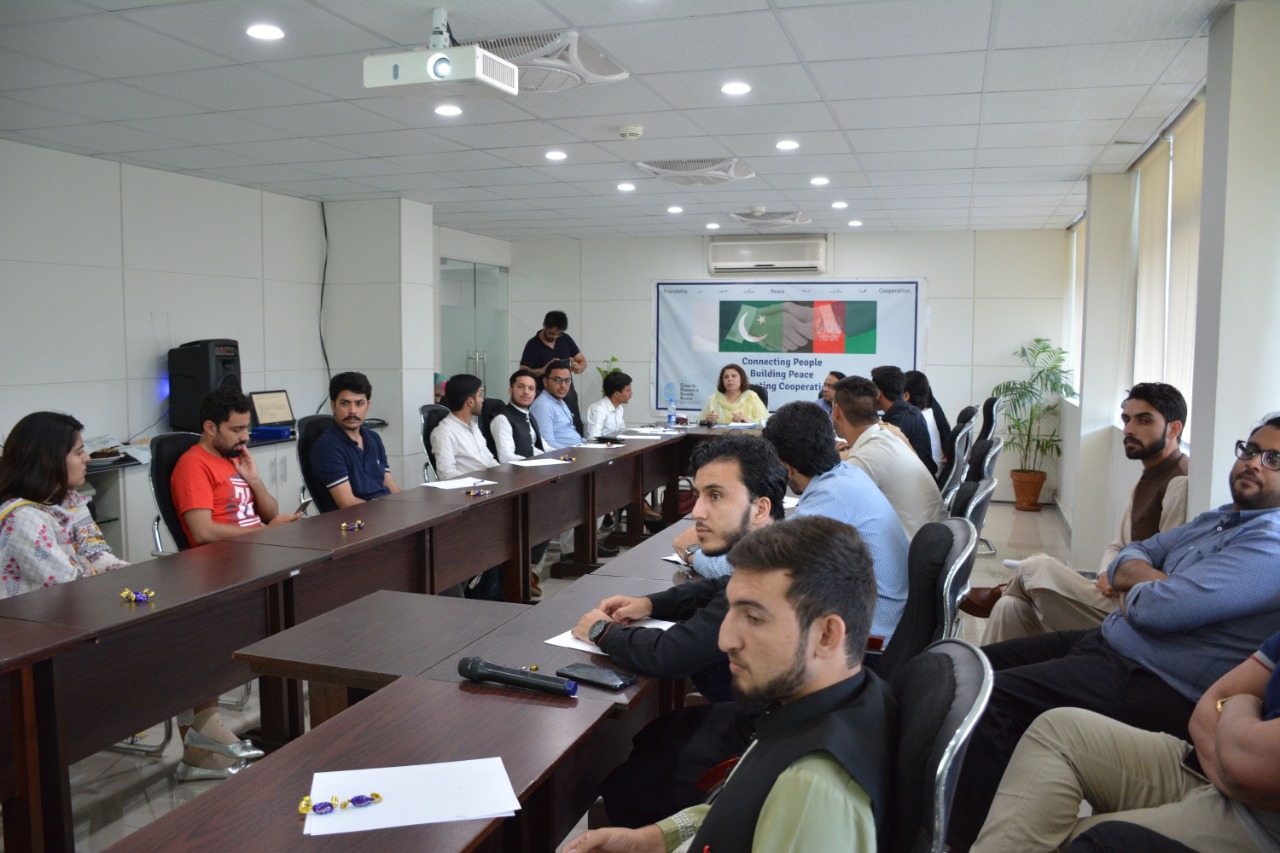
Dr. Shabana Fayyaz stressed the need to vet the speeches of Friday sermons, though already under monitoring in the big cities since National Action Plan implementation, in the small cities where the clergies are not brought under any check. She also stated that the environment plays a significant in drilling the notion of perceived justice where some factions of the society consider it their personal duty to wage Jihad. Dr. Fayyaz stated that Jihad is a concept that the Muslims around the world have still failed to resolve the real definition of. Due to the confusion regarding who can wage Jihad, many Muslims take it in their own hands.
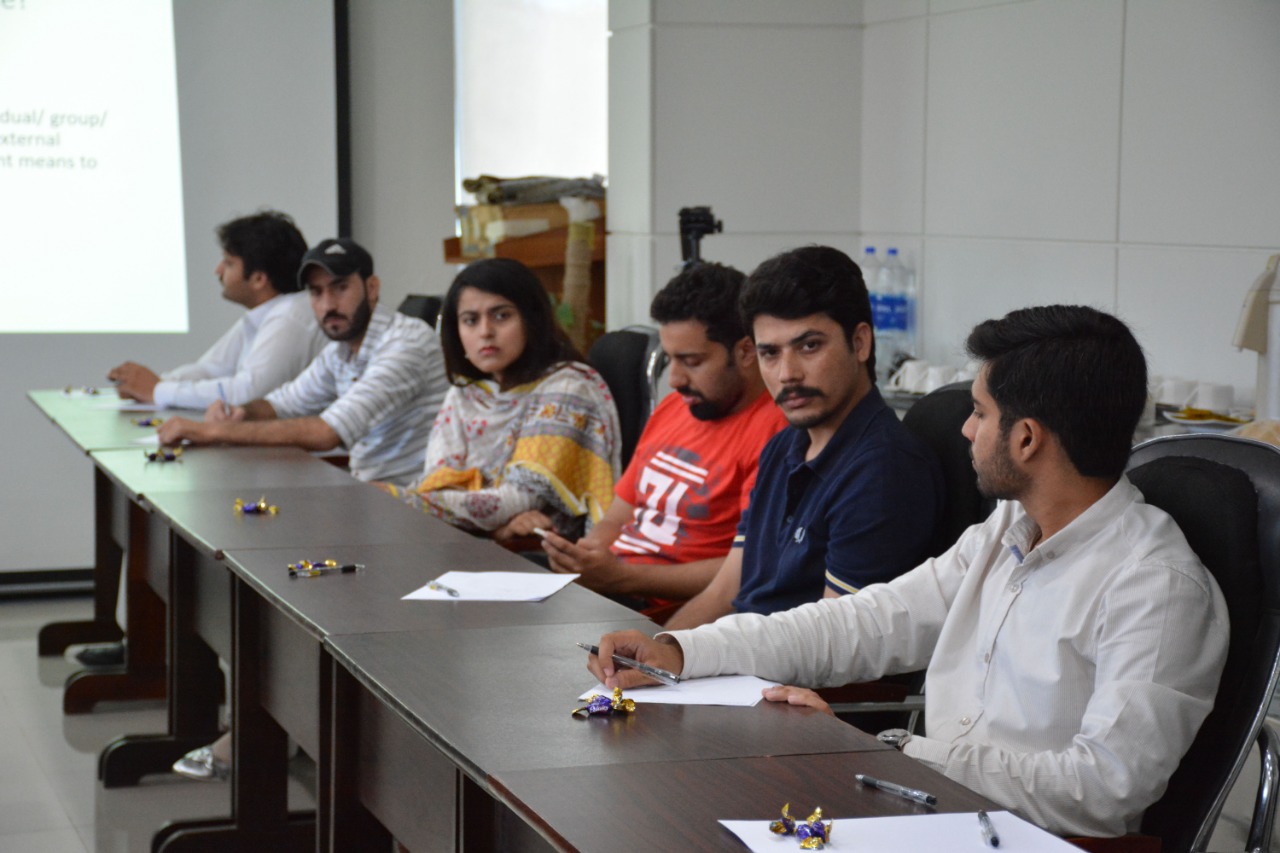
Further, Dr. Fayyaz stated that, contrary to the false belief, illiteracy does not actually directly breed radicalization but it increases vulnerability towards it. Hence, she stated that there is a need to develop counter-narratives, affirming that the process of radicalization revolved was primarily a mind game and a generational task.
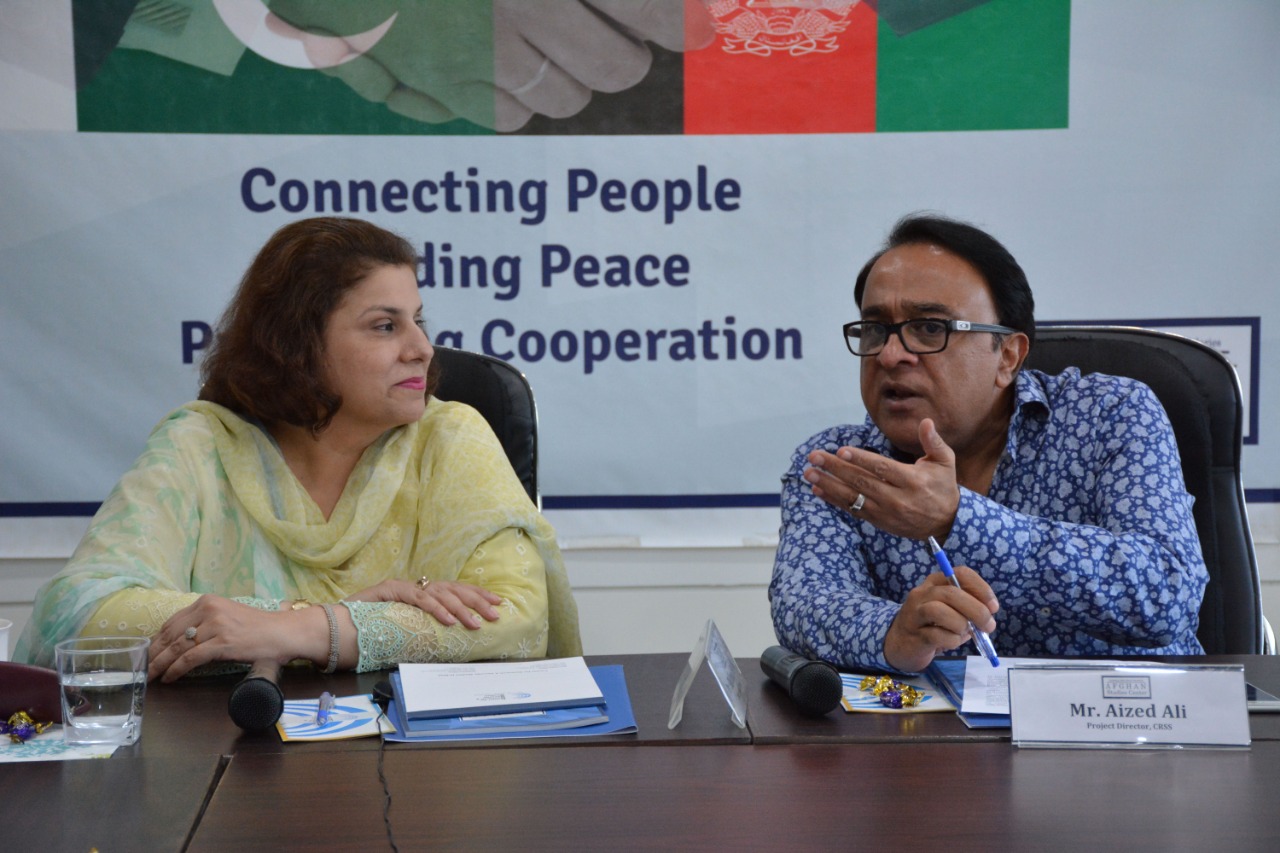
CRSS Project Director Mr. Aized Ali apprised the participants about the ongoing CRSS Pak-Afghan Track 1.5/II Initiative ‘Beyond Boundaries’ which has so far convened 16 high level meetings between the two Pak-Afghan influencers’ groups, to bridge the gulf of mistrust and improve bilateral relations between Pakistan and Afghanistan. He told the participants that the Afghan Studies Center emerged from this initiative, aiming to provide the youth of both countries a platform to inculcate critical, creative and out of box thinking, and to dispassionately interact and exchange ideas as they emerge as future leaders and ambassadors of peace.
At the end, ASC team presented the respected trainer with an honorary shield of appreciation, followed by a group picture with the participants.
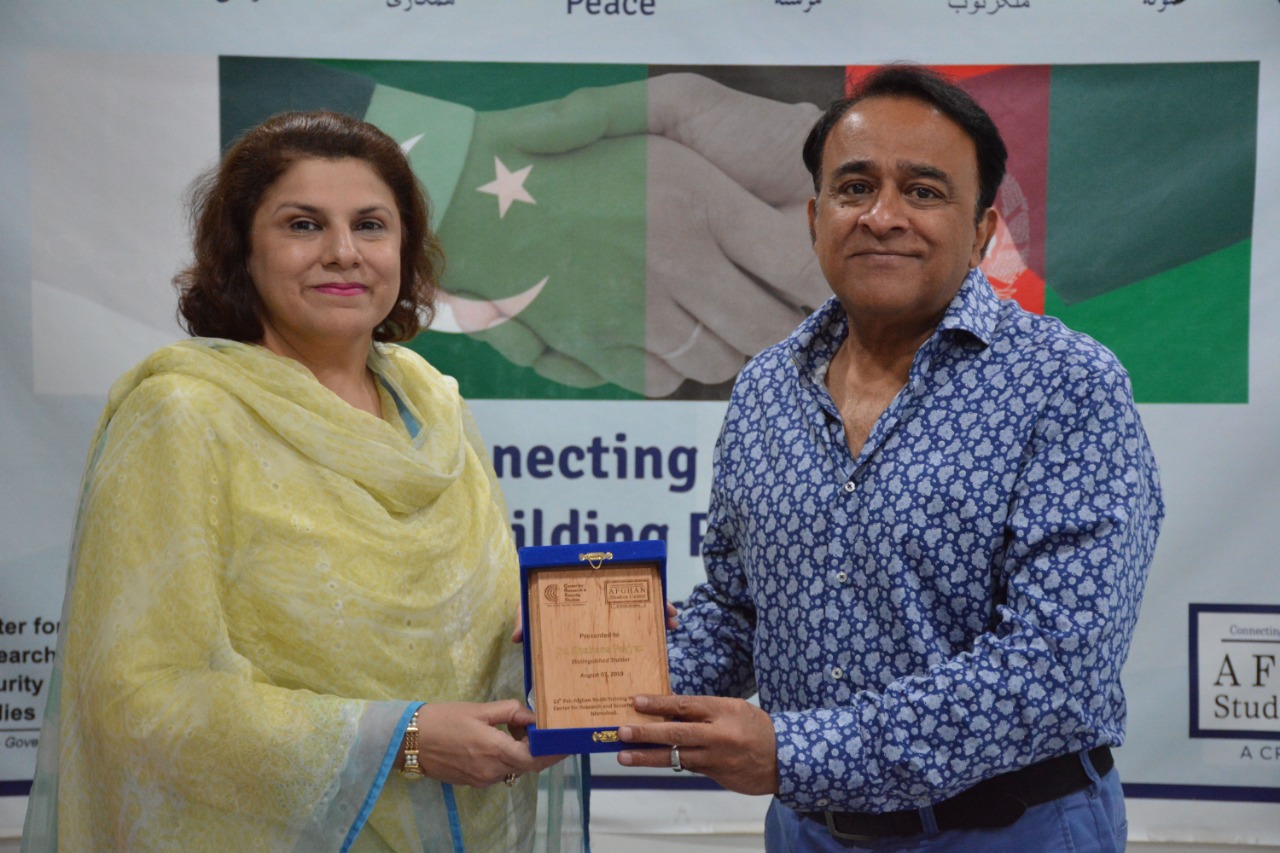
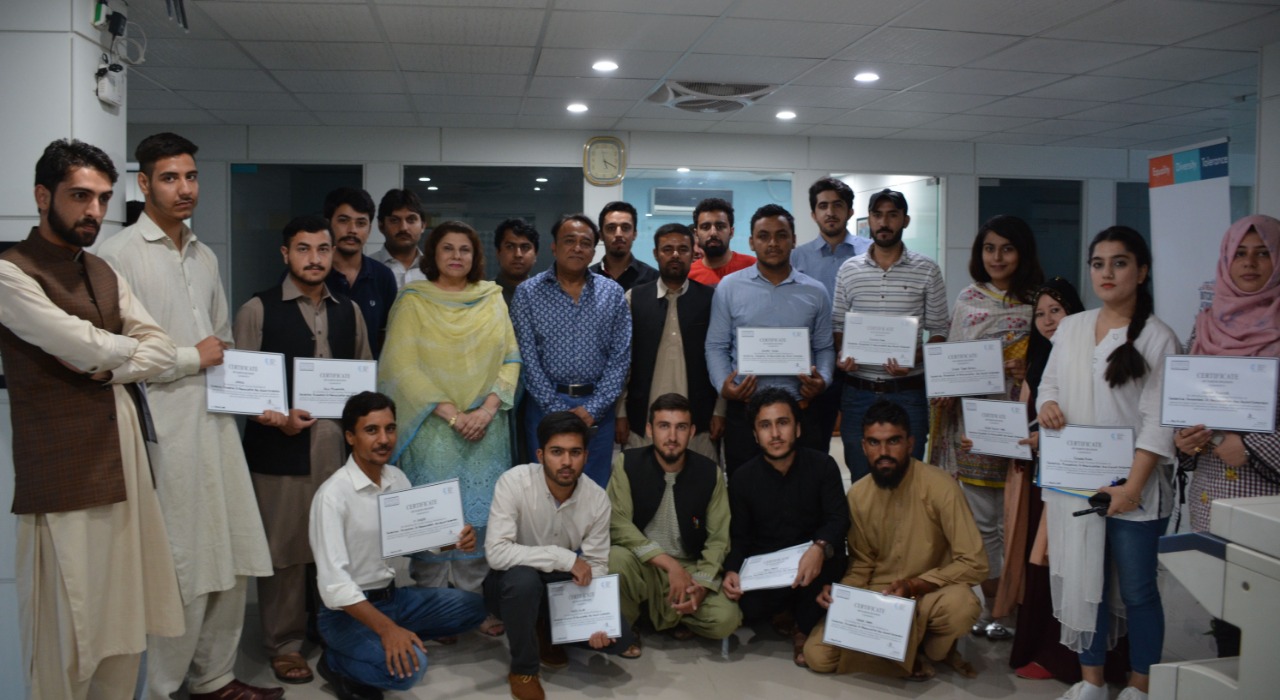
These quarterly workshops are organized by Afghan Studies Center which is a sister organization of the Center for Research and Security Studies (CRSS) and has an alumni of over 500 Pakistani and Afghan youth now. Afghan Studies Center aims at encouraging peace narratives and critical thinking through its monthly Pak-Afghan youth dialogue series, and quarterly training workshops, which focus on the skill development and capacity building of emerging future leaders from both countries.
© Center for Research and Security Studies (CRSS) and Afghan Studies Center (ASC), Islamabad.



